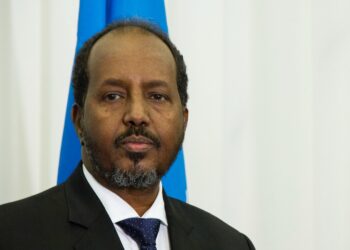By Ere-ebi Agedah Imisi
Across Africa, Gender-based violence (GBV) is a universal issue affecting millions of women and girls, and hindering the continent’s socio-economic development. GBV survivors are usually hesitant to speak out about alleged violation due to associated pain, degradation and helplessness.
GBV encompasses various forms of abuse, including physical, sexual, emotional, and psychological harm. Despite increasing awareness and efforts to combat GBV, the persistence of this violence continues to undermine Africa’s progress, with far-reaching consequences on economic growth, social stability, and human rights.
Scope of Gender-Based Violence in Africa
Africa has some of the highest rates of GBV globally, with women and girls bearing the brunt of this violence. According to the World Health Organization (WHO), approximately one in three women worldwide has experienced physical or sexual violence, with rates often higher in Africa due to factors like patriarchal norms, cultural practices, and socio-economic inequalities. Countries such as South Africa, Nigeria, Kenya, and the Democratic Republic of the Congo report particularly high instances of GBV, which severely impacts the victims and their communities.
Lydia, a single mother of one, recounted to our correspondent her experience of financial abuse during her marriage. She explained that her ex-husband would deliberately withhold financial support whenever they had even minor disagreements, sometimes for days on end. At the time, Lydia had no job and relied entirely on him for financial stability.
GBV is deeply rooted in cultural and structural inequalities because many African societies maintain patriarchal structures where men hold primary power and dominate roles in political, social, and economic sectors. This often results in gender disparities that perpetuate violence against women. GBV is further fueled by poverty, lack of education, and limited access to justice, creating an environment where such violence is normalized or goes unpunished.
Economic Impact
GBV has significant economic costs that stall development across Africa. Violence against women reduces productivity, limits economic participation, and places a substantial burden on public resources. For instance, a study by the World Bank estimated that the global cost of violence against women is around $1.5 trillion annually, equivalent to approximately 2% of global GDP. In Africa, where economic resources are already constrained, the costs of GBV are even more debilitating.
Women who experience GBV are less likely to participate fully in the workforce due to trauma, physical injuries, and ongoing threats. This leads to lower productivity and missed economic opportunities. In countries such as Kenya, where domestic violence alone is estimated to cost the economy about $300 million annually, the impact of GBV on development is profound. These economic losses translate into slower growth rates, reduced investment in human capital, and an overall reduction in a nation’s development potential.
GBV also affects children and families. Children who witness violence or are themselves victims often experience long-term psychological and emotional effects, including lower educational attainment and future economic prospects. This perpetuates a cycle of poverty and violence that spans generations, further stalling development.
“When women can’t work because they are being abused, it doesn’t just hurt them; it hurts the economy. We are talking about millions of women who could be contributing to GDP growth but are instead trapped in abusive situations,” says a gender advocate.
Social Consequences
Beyond the economic costs, GBV has significant social implications that hinder Africa’s development. The violence disrupts social cohesion and contributes to a culture of fear and insecurity. Women and girls who suffer from GBV are often stigmatized, ostracized, or even blamed for their victimization, leading to further social isolation.
The effects of GBV extend to public health. Survivors often require extensive medical care, including treatment for physical injuries, sexually transmitted infections, and mental health issues. These healthcare needs strain already limited resources, diverting funds away from other critical areas such as education and infrastructure development.
Moreover, GBV undermines women’s empowerment and participation in governance. Women who fear violence are less likely to run for political office, participate in community leadership, or advocate for their rights. This exclusion from decision-making processes means that women’s perspectives are often missing from policy discussions, leading to a lack of gender-sensitive policies and a failure to address the needs of half the population.
Weak Response Mechanisms
While many African countries have enacted laws and policies to combat GBV, enforcement remains weak. The lack of effective legal frameworks, coupled with corruption, limited resources, and a lack of political will, has resulted in inadequate protection for victims and minimal consequences for perpetrators. In some regions, customary laws and practices continue to override formal legal systems, perpetuating harmful gender norms and practices such as child marriage and female genital mutilation (FGM).
Furthermore, access to justice is a significant barrier for many survivors of GBV. In rural and remote areas, women often lack the financial means or knowledge to pursue legal action, and law enforcement agencies are often under-resourced, untrained, or complicit in perpetuating violence. This lack of accountability fosters an environment where GBV is normalized, further stalling efforts toward gender equality and sustainable development.
Way Forward
Addressing GBV is not only a moral imperative but also a critical factor in achieving sustainable development in Africa. Ending GBV requires a multi-faceted approach that includes legal reforms, community-based interventions, education, and economic empowerment programs for women and girls. Governments, civil society, and international organizations must work together to create an environment where GBV is not tolerated and survivors receive the support they need.
Education plays a crucial role in transforming attitudes towards gender roles and promoting equality. Empowering women through education and economic opportunities is essential to breaking the cycle of violence and poverty. Additionally, strengthening legal frameworks and ensuring their enforcement can help deter perpetrators and provide justice for victims.
Additionally, engaging men and boys in the fight against GBV is crucial. Changing cultural norms that condone violence against women requires the involvement of everyone in society, regardless of gender. By promoting positive masculinity and advocating for gender equality, Africa can move towards a future where everyone can contribute to its development without the fear of violence.
Call to Action
Gender-based violence is a significant barrier to Africa’s development, with profound economic, social, and political impacts. It is not merely a women’s issue, it affects entire communities and countries, it is clear that tackling GBV is not just a moral imperative, but also an economic necessity.
To achieve sustainable development, Africa must address GBV with the urgency it deserves. Also, by investing in education, legal reforms, and community-based interventions, Africa can begin to address the root causes of GBV and unlock the potential of millions of women and girls in the continent.

































